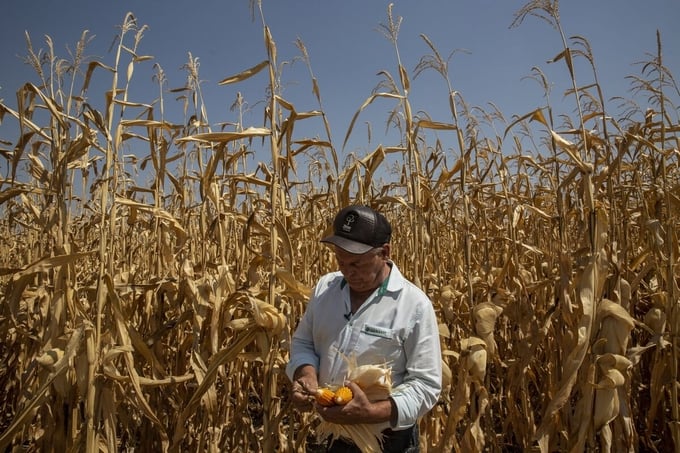May 21, 2025 | 08:11 GMT +7
May 21, 2025 | 08:11 GMT +7
Hotline: 0913.378.918
May 21, 2025 | 08:11 GMT +7
Hotline: 0913.378.918

A farmer looks over corn during a harvest at a farm in Correntina, Brazil.
Photo: Dado Galdieri/Bloomberg
The plan is to use the money to establish loans for farmers starting in 2024, Roberto Perosa, secretary of commerce and international relations at the nation’s agriculture ministry, said in an interview on the sidelines of an industry conference in Sao Paulo. The ongoing negotiations for funding include talks with sovereign funds, as well as other government-controlled entities in Asia and the Middle East, he said.
Brazil’s 10-year goal of recovering 40 million hectares (about 99 million acres) of degraded pasture, or lands once used for grazing that are no longer productive, is part of the country’s plan to continue expanding its production of crops like corn and soybeans while curbing deforestation of the Amazon. Europe recently banned imports on crop products that come from deforested area.
The ministry recently said Saudi Arabia’s state-owned fund Saudi Agricultural and Livestock Investment Co. was among parties interested in contributing funding.
According to Perosa, the Brazilian government is seeking resources that producers’ could borrow at interest rates lower than traditional credit lines. More than 200,000 potential properties that could benefit from financing have already been mapped. Banco do Brasil could participate, structuring the loans to producers, he said.
Bloomberg

(VAN) Attempts to bring down the price of the Japanese staple have had little effect amid a cost-of-living crisis.

(VAN) Fourth most important food crop in peril as Latin America and Caribbean suffer from slow-onset climate disaster.

(VAN) Shifting market dynamics and the noise around new legislation has propelled Trouw Nutrition’s research around early life nutrition in poultry. Today, it continues to be a key area of research.

(VAN) India is concerned about its food security and the livelihoods of its farmers if more US food imports are allowed.

(VAN) FAO's Director-General emphasises the need to work together to transform agrifood systems.

(VAN) Europe is facing its worst outbreak of foot-and-mouth since the start of the century.

(VAN) The central authorities, in early April, released a 10-year plan for rural vitalization.